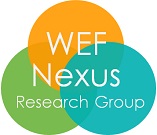Global Design Teams – the Senior Capstone Experience: Learning Through Global Service
Biological and agricultural engineers make significant contributions to meeting many basic needs of society such as maintaining food quality, quantity and safety; improving environmental quality; and enhancing the quantity and quality of our water resources. Students can develop an emphasis in one of four areas: environmental and natural resources engineering, renewable energy, food and bio-process engineering, machine systems engineering. They can learn anything from the production and processing of food and fiber, to the preservation of environmental quality, to biological systems and processes, and to machine systems that interface with all of these.
Global Design Teams (GDT) are real-world, full-cycle design experiences help raise global awareness, at home and abroad. GDTs are one means of accomplishing the engineering capstone requirements. In a class spanning two semesters (fall and spring), students have the benefits of addressing real-world engineering challenges drawn from the private and public sectors. Student teams (3-5 members) work closely with their sponsors and communities developing solutions to the challenges posed. GDTs focus on high-impact projects that can be addressed over the course of an academic year.
Condensed Global Design Fact Sheet here.
Click the links below to learn more about projects
International Project Reflection Summaries (GDT 2024) Urban Agriculture: Verti-Culture (American University of Beirut); Cuenca Wastewater Treatment Project (University of Cuenca, Ecuador); Sarita Well-water Filtration (Communidad Sarita, Guatemala)
2017-2018 Project: Rwanda
Want to sponsor a Global Design Team? Costs are shared by all, including the students themselves. The stakeholder community includes: the Texas A&M student’s home department, partner organization, interested corporations and academic partners in the host location. All of these work together to achieve positive, sustainable interaction while utilizing the technical skills and competencies of the students, employees, and volunteers involved in the project. The goal is to address specific challenges within the community for the mutual benefit of all. All participants are fully engaged and and committed to working together: Sponsors, Students, Faculty Advisors, and Community Partners comprise the team and contribute their time, financial support, and expertise toward its success.
PROJECT TIMELINE

Week Zero – Initial contact, any time prior to the beginning of the new semester, preferably over the summer months, to establish contact, present the idea’s feasibility, and start the discussion. Contact the BAEN Capstone Coordinator: Dr. Rabi Mohtar, mohtar@tamu.edu with your idea for a project and/or for sponsorship.
Fall Semester
Target 1: Conceptual Design: discussion between Sponsor and BAEN Faculty to identify the concept and confirm it as a project for the coming year.
Target 2: Draft of the Project Deliverable: a one page sketch of the proposed deliverable/s will be provided to the Sponsor by the BAEN Faculty for Sponsor’s approval/feedback.
Target 3: Meet the Team: a preliminary discussion between Sponsor and Team. This happens either in person in the classroom or via Skype, and is the first direct contact with students.
Target 4: In-class Student Presentation: during which the sponsors provide feedback (in person or via Skype) to the presentation of the design plan.
Exams Week and Winter Break (No Classes)
Spring Semester
Target 5: Getting Started: Literature review, brain storming for possible solutions, initiation of hands-on work
Target 6: Final Design Submission to the sponsors, student visits to sponsors for this presentation
Capstone Event – poster symposium, open to the public, in which students interact with sponsors and faculty and guests presenting, explaining, and celebrating their experience.
How to Get Involved:
Students: Global design teams include undergraduate students from disciplines both within and outside of the college of engineering. While student recruitment is typically focused on students enrolling in their capstone projects, opportunities for involvement may be available throughout the year.
Faculty: Global design teams invite faculty to become involved as advisers, teachers and consultants. We welcome ideas for new global service-learning courses.
Community: Organizations (companies, NGOs, etc.) interested in engaging in, or sponsoring, a global design team of specific interest to them are essential to the program.
For more information contact Professor Rabi H. Mohtar at mohtar@tamu.edu.

 WEF Nexus Research Group
WEF Nexus Research Group